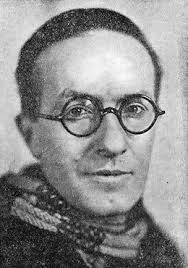
Jean Giraudoux
Hippolyte Jean Giraud (October 29, 1882 - January 31, 1944) was a French novelist, publicist, diplomat, and playwright. He is considered one of the most important French playwrights of the period between the First and Second World Wars. His works are known for their stylistic elegance and poetic fantasy. Giro's dominant theme is the relationship between a man and a woman or, in some cases, between a man and some unattainable ideal. Giro was born in Bellak, Upper Vienna, where his father, Leger Giraud, worked at the Ministry of Transport. Giro studied at the Lakanal Lyceum in Sceaux and, after graduation, traveled extensively throughout Europe. After returning to France in 1910, he accepted a position in the Ministry of Foreign Affairs. With the outbreak of World War I, he served with distinction and in 1915 became the first writer ever to be awarded the War Legion of Honor. He married in 1918 and in the subsequent interwar period produced most of his works. For the first time, he achieved literary success thanks to his novels, in particular, Siegfried and Le Limousin (1922) and Eglantin (1927). The constant collaboration with actor and theater director Louis Jouvet, which began in 1928 with the radical rationalization of Jouvet Siegfried for the stage, stimulated his writing. But it was his plays that brought him international fame. He became widely known in the English-speaking world thanks in large part to the award-winning adaptations of his plays Christopher Fry (The Trojan War Will Not Fail) and Maurice Valentia (Crazy Woman Chaillot, Ondine, Charmed, Apollon Bellaka). ) Giraud served as a jury with Florence Meyer Blumenthal, awarding the Blumenthal Prize, a grant granted between 1919 and 1954 to artists, sculptors, decorators, engravers, writers, and musicians. In politics, he was associated with the Radical Party, served in the office of Eduard Herriot in 1932, and was appointed Minister of Information Eduard Daladier in 1939. He is buried at the Cimetière de Passy in Paris.

